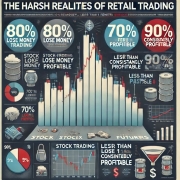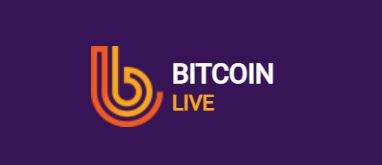Factor Update August 30 2024
/by Peter BrandtNew Video – Trade Setups: Yield curve, AAVE, Popcat, JUP/JLP
/by Jonathon KingFactor Update, August 24, 2024
/by Peter BrandtSo you want to be a full time trader? Good luck with that one!
/by Peter BrandtHere is what Chat GPT says about your chances?
Statistics on the profitability of retail traders in stocks, commodity futures, and forex markets are both revealing and cautionary. They generally show that the majority of retail traders do not achieve consistent profitability, and only a small percentage become profitable enough to sustain themselves, let alone make a career out of it. Here are some key statistics from various studies and reports:
1. Stock Trading
- Profitability: A study by the University of California, Davis, found that around 80% of day traders lose money over the course of a year, and only 1% are consistently profitable over time.
- Career Viability: For those aiming to make a career out of it, the odds are even steeper. A smaller percentage, possibly less than 1%, are profitable enough to support themselves solely through trading.
2. Forex Trading
- Profitability: Various broker studies, such as those by the European Securities and Markets Authority (ESMA), indicate that 70-80% of retail forex traders lose money. Some estimates suggest that only about 10-15% are able to break even or be slightly profitable.
- Career Viability: The percentage of traders who are profitable enough to sustain themselves is estimated to be well below 1%. Many profitable forex traders supplement their income with other activities.
3. Commodity Futures Trading
- Profitability: Commodity futures trading is similarly challenging. Studies and reports have shown that about 90% of futures traders lose money. A small group, typically less than 10%, may become profitable over time.
- Career Viability: Similar to other markets, the percentage of futures traders who can consistently support themselves and make a career out of trading is likely under 1%.
4. General Retail Trading (All Markets)
- Profitability: According to a report by the U.S. Securities and Exchange Commission (SEC), about 70-80% of retail traders lose money overall.
- Career Viability: The number of retail traders who achieve sufficient profitability to make a living is estimated to be less than 1%.
Summary
- Most traders (70-90%) lose money.
- A small percentage (10-30%) might break even or make modest profits.
- Only about 1% or less of traders are profitable enough to sustain themselves through trading alone.
******************************************************************************************************************************
The U.K requires retail foreign exchange brokers to report on the success rate of their clients. Please provide the most recent findings from these reports, perhaps broken down by the individual brokers.
In the UK, the Financial Conduct Authority (FCA) mandates that retail forex brokers disclose the percentage of their clients who are profitable versus those who lose money. The most recent data from 2024 indicates that a significant majority of retail forex traders do not achieve profitability.
Here’s a breakdown of some of the key figures reported by major FCA-regulated brokers:
- IG Group: About 70% of retail investor accounts lose money when trading CFDs (Contracts for Difference) with this provider.
- City Index: Approximately 69% of retail clients lose money trading CFDs with this broker.
- eToro: Around 70% of retail investor accounts lose money when trading CFDs on the platform.
- Plus500: A high percentage, 79.90% of retail investors lose money when trading CFDs with Plus500.
- FXTM: The data shows that between 74-89% of retail clients lose money trading with this broker.
These numbers demonstrate that while a small percentage of traders may be profitable, the vast majority incur losses. This trend is consistent across different brokers, highlighting the inherent risks in retail forex trading
These statistics highlight the significant challenges of trading, especially for those who wish to make it a full-time career. Successful trading requires not only a solid strategy and discipline but also a deep understanding of the markets and the ability to manage risk effectively.
*************************************************************************************************************
My Perspective
The data herein completely reflect my observations over the past 50 years as a career futures market speculator. I do not attribute my success as a futures market speculator to such things as:
- Natural abilities
- Knowledge
- Intelligence
- Knowing the right people
Rather, I attribute the longevity of my career to the following things:
- I entered futures trading at the right time — at the very start of the commodity market price booms.
- As a trader, I was willing to learn from my mistakes and put my ego aside
- Several CBOT members took a liking in me and provided me with wisdom I might not ever have attained
- I am SUPER risk adverse. There are old traders and there are bold traders — I do not know any OLD BOLD traders
- My goal from the onset was to earn a living by trading — not to become super wealthy. So, I evolved in a manner that avoided the type of BIG bet that often ends trading careers
- Throughout life I have been a problem solver
So, this post is the narrative of how so many aspiring traders fail. But, what are the features of those who succeed? While there is no guarantee of success, the following traits/characteristics are just some of the essentials:
- Understanding it takes four or so years just to get the scent of how to properly trade
- Learning to be a good loser before becoming a moderate successful trader
- Discovering (usually after many mistakes and false starts) an approach or method that cuts losses quickly and allows small winners to become large winners
- Patience and discipline
- Ability to overcome emotional self-sabotage
- Realistic assumptions about what success is in trading (and it is not generating 10X every year)
- Ability for self-forgiveness
- Finding the fine edge between boldness and risk aversion
Active market speculation is NOT for the vast overwhelming proportion of people. My advice to most people is to place their assets into a combination of real estate with cash flow, SPY-etf and QQQ-etf. Depending upon one’s age and risk tolerance, an allocation to Bitcoin is also advised.
One final comment: I am a believer in Inverted Thinking. Elon Musk is a huge inverted thinker. What does this mean? For me it means to focus more on avoiding the worst things that could happen than on the best things that could happen — to first address those behaviors and actions that get me into trouble.
It is not my intent for this post to discourage you from trading. Rather, I believe that understanding the realities of market speculation is a prerequisite for eventual success.
To know more about me as a futures market speculator, watch this You Tube video of the interview between Raoul Pal, founder of Real Vision, and myself.
By the way, here is how Grok replied to the same question:
-
Profitable Traders: A small percentage of traders, possibly around 20% or less based on one platform’s data, are profitable. However, this doesn’t specify if this profit is enough to live off.
-
Unprofitable Traders: The majority, likely significantly more than 50%, either break even or lose money over time.
-
Career Traders: The percentage of traders who can make trading their career by being consistently profitable enough to support themselves is likely very small, possibly less than 5%, considering the skills, discipline, and psychological fortitude required.
###
Actual Alpha – Interim Update – August 16, 2024
/by Jonathon KingFactor Update, August 17, 2024
/by Peter BrandtA follow-up regarding my attack on the “we-fund-you” prop industry
/by Peter BrandtThe industry has a legitimate role to play — it is just not playing this role with integrity
I have very directly confronted the “we-fund-you” prop trading industry. For more background, see this blog post. https://www.peterlbrandt.com/the-we-fund-you-prop-trading-industry-should-be-immediately-shut-down/
The problem is not the concept of customers paying a small monthly fee to paper trade with the hope of being in a super minority qualifying for a big payout by beating the game according to the of trading the price change of futures contracts as set by the prop firms.
For many under-capitalized wannabe traders this should be an alternative.
Rather, my problem is the slime attached to the industry, such as:
- Trading rules optimized for clients to lose money
- Constantly changing rules for payouts
- Lack of registration — IMO these are gaming companies and need to register with state gaming commissions in addition to registration with the CFTC. Why the CFTC? Because customers lose or make money by placing bets on the price changes of regulated futures contracts.
- Lack of transparency
- Lack of honesty in advertising and promotional messages. For example, most of the U.S. based firms hype the possibility of successful paper trading clients becoming eligible to trade real money in real markets. But this is basically a fraudulent idea (with perhaps one exception).
- The Prop firm affiliate programs and accompanied You Tube hype of social influencers/clients claiming huge trading profits when in fact, there is no actual trading taking place
Let the industry clean up its act and be subject to registration and regulation.
End








